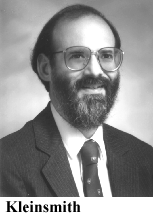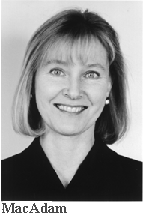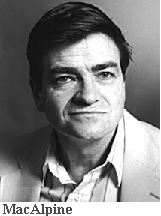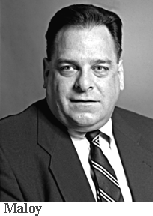The University Record, March 11, 1997
Four vie for three seats in SACUA elections
Four members of Senate Assembly are running for three seats on the Senate Advisory Committee on University Affairs (SACUA).
The election will be held at the Monday (March 17) Senate Assembly meeting. The winners will serve three-year terms beginning May 1, succeeding Thomas M. Dunn, professor of chemistry; Samuel Gross, professor of law; and Ronald Lomax, professor of engineering.
Candidates have provided position statements, excerpted here, and biographical information. The full text of their statements is available on the WorldWide Web at http://www.umich.edu/~sacua/saccand.html.
Lewis J. Kleinsmith
|
|
“Among the currently prevalent forces that have the potential to drastically alter the future of the University of Michigan are increasing budgetary constraints, new approaches to distributing resources (e.g., VCM), rapidly accelerating changes in information technology, and subtle (and not-so-subtle) attacks on tenure and academic freedom,” says Kleinsmith, professor of biology and a faculty member for 29 years. “By working harder to open two-way communication with the faculty, SACUA could help to ensure that the faculty would speak with a louder voice as the challenges of the next few decades are being faced.” |
Barbara MacAdam
|
MacAdam, head of educational and information services for the University Library, cites the following issues “where faculty input is essential: the opportunity to work in partnership with new leadership across the University; the shape of the undergraduate and graduate student experience; the challenge to sustain scholarly activity within and across disciplines in light of shifting national priorities; the opportunity and the responsibility to build a technology infrastructure serving the needs of research and teaching; the relationship of the Medical Center and Hospitals to the University and its mission; and the need to achieve a true community of students, faculty, and staff with diverse interests but a common sense of purpose.” |
|
Gordon MacAlpine
|
|
MacAlpine, professor of astronomy and a faculty member for 25 years, says that in addition to the new presidency, “this upcoming period is also particularly important because of the current, dynamic interplay among research, teaching, technology, and Value Centered Management. I do not fully understand VCM, and I hope its benefits can be realized without compromising important academic cross-fertilization among the various units of the University, as well as within the student body . . . There is no question the University as a whole is very strong in every measurable respect, but I would like to see more utilization of all faculty resources, with more widely dispersed benefits for all faculty, staff and students.” |
Pat Maloy
|
“I think the most interesting challenge facing the University today is change,” says Maloy, associate professor of kinesiology. “Change is often viewed in contrary ways. It can be seen as nothing more than that which has been experienced before, so we don’t react because we don’t believe it. By the same token, change may seem to overwhelm us so we don’t react because we don’t know how. My experience is that change usually represents innovation and new opportunities, but it requires resiliency . . . I believe that SACUA has a leadership obligation to help the University community become resilient to the uncertainty created by change [and] that SACUA has leadership role to help the University community recognize the opportunities and benefits that change inevitably brings.” |
|





